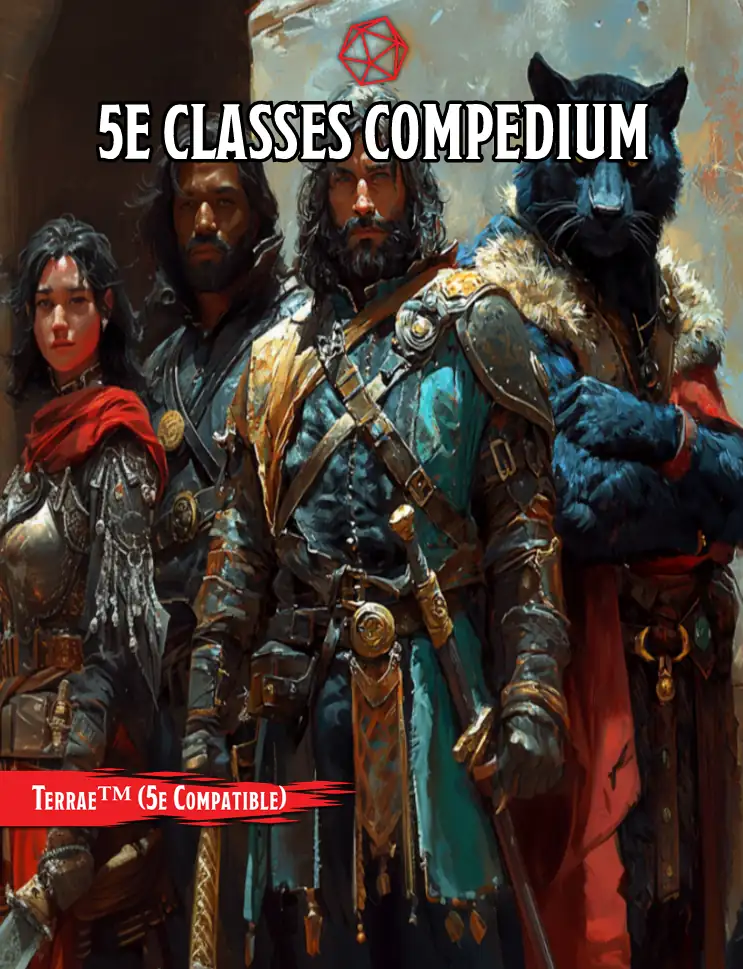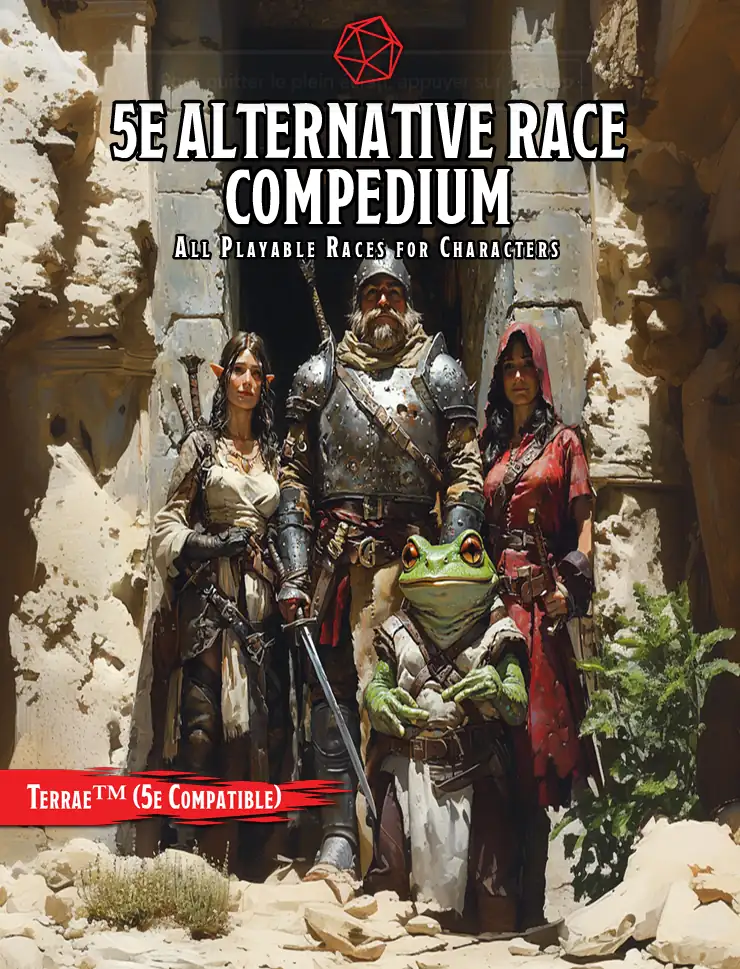Strangely, the concept of dungeon crawling took over the hobby. It is suitable for follow-on sales, but it feels strangely fake as the core of the hobby. Many games in the 1990s walked away from the dungeon concept, and a lot of creativity and imagination came into the hobby. We had the Palladium games, which were never really dungeon-crawling games, Vampire, GURPS, Cyberpunk, Shadowrun, and a few others that did not put "the dungeon" as the peak of adventure gaming. By the 1990s, the dungeon had been done, and even AD&D 2nd Edition shifted more towards story-gaming and modules based on novels.

Which is why my Palladium SDC games are sticking around. They come from the post-D&D era and tried to do something new. We are in that post-D&D era again, where the "dungeon as adventure" has been done to death, and we are ready for more story-based adventures. Once you build your character in a Palladium game, that is your "playing piece" that you take through various situations and scenarios. That sounds precisely like D&D, but it differs from the 90s RPGs.
The first goal is to "assemble your team of experts," and characters in Palladium's games need each other since they are all specialists in certain areas, and below average in areas unrelated to their specialties. In Palladium games, if you pick the archer, you will be the best archer ever. If you choose the ninja, you will be the best ninja ever. You will excel in your area of specialization, but you need the healer, warrior, wizard, and all others in your group.
You are trying to solve a series of situations with your characters, where you will all have a chance to shine. A dungeon is not a dry grid of room descriptions; more than it is a list of situations you will all need to resolve, circumvent, or work your way through to achieve your objective.
The "SB" in SBRPG stands for situation-based. This is what our game was about.
The gameplay in situation-based gaming is dynamic and incompatible with set-in-stone keyed room descriptions. It is almost sandbox-based play, with factions in the world working "live" to achieve their own goals, and you running around trying to stop them. In a Keep on the Borderlands-style adventure, the Caves of Chaos would not be the focus. The area map would be better filled with hamlets and villages around the keep, interesting locations, a wizard's tower, a soaring ancient bridge, small farms, outposts, trading camps, and other spots. Then, the tribes would enter the map, set up camps, and begin to take down civilization as marauders.
Each group's force numbers and memorable NPCs would be tracked and killed, and the situation would evolve organically. Your group may choose to root out the goblins stealing food from farms and burning them down first, and that may slow down the other forces when they begin to suffer food shortages. You may choose to break the orc siege of a southern town first, and that would free up men to reinforce the outposts.
The concept works on a master "situation" and breaks down into lower levels of "sub-situations" each faction pursues to achieve a goal. Your goal, as heroes, is to be the monkey wrench thrown into the scene. The master situation will not end well. Left unchecked, these bands of humanoids will surround the keep, lay siege, kill everyone inside, and take over the fort as an evil, demon-worshipping humanoid stronghold and blight upon every surrounding kingdom as more evil flows in from the broken lands.
This is how we played these 90s games; they were never dungeon crawls but live, active, dynamic, and engaging meshes of cause-and-effect, live situations that required multiple play sessions to work out and play through. There are no 'passive skills' that play the game for you, so you can stay on your phone. The Palladium games are perfect for this 'live action' play since your "team of experts" is there to tackle these problems with the tools you have and in the best way you see fit.
Do you have a stealthy ranger and ninja pair that can wreak havoc on goblin warbands?
Are you more a heavy metal group with tanks and healers, meant to bloody the nose of an orc assault?
Do you work more with magic that manipulates the mind and can turn the humanoid factions against each other? Or are you a more arcane sorcerer who can summon elemental forces or twist the land to stop the invaders?
Are you more in tune with nature and turn the land and animals against the invaders, washing out roads, tangling vines to slow them down, and calling on woodland spirits to fight alongside you? Are there nature factions to align with for this character type?
In Palladium games, other characters need you, and you need them.
The story modules for D&D in the 1990s were all about railroads. They were a series of combat encounters strung together by a story. Again, the live sandbox style of play ends up being the same series of combat encounters, but again, there is a vast difference here. There was typically zero freedom in how you pursued your goals in the 1990s TSR story modules.
The structure of the D&D adventuring party did not change, and it felt like a poor fit for those scenarios. Even today, D&D struggles with skills, and characters don't feel like "they have the tools for the job."
Palladium?
I have the skills for many jobs, thank you.
D&D rarely does "big magic," and 90% of the powers in the game are meant to be used in a small room. In the old days, you had "big spells" mixed into the list, like 'illusionary terrain' spell, and the 'pass without trace' spell. By the time we got to D&D 4, the game's scope had shrunk to become an MMO with small powers, and 5E continues in that direction.
Does it matter that characters in Palladium games are complex and take a while to create? No. Character creation is 90% of the game, where the focus of the rules should be. The rest of any Palladium game is so simple it puts rules-light games to shame. Combat is simple. Turn actions are simple. Skill rolls are simple. The action economy is simple. Damage and healing are simple. Armor is simple. Resources burn down, requiring rest and breaks, so you need to be able to plan for downtime and replenishment.
Palladium still captures the classic resource management elements of the classic role-playing games.
With d20 games like D&D, the story is the same as in the 1990s. D&D's characters are too simple and lack the tools to deal with dynamic situations. Your powers are room-based and don't do anything big and cool. While characters are specialized, they are specialists. The overlap of spells and abilities makes some character types obsolete. Every class is set up to tackle dungeons and not live situations. With frequent rests restoring most resources, the game feels like an MMO where your powers are full in every encounter.

Yes, there is always the Rifts game, but I am not focused on Rifts right now. I do not want MDC. I want a lower-level game where hit points and SDC matter. That part of the Palladium system is excellent, and focusing on the SDC games in an SDC universe is a joy. MDC weapons and powers are a distraction and trivialize the combat math into all-or-nothing, alpha-attacks, and going first. Playing with weapons that can destroy city blocks is fun, but my heart lies in the lower-level, smaller-focused, personal games.
The Rifts game is another discussion entirely. It is a lot like Robotech at heart; that is where you need to begin understanding it all. For me, the SDC games capture the Palladium charm the best.
I like the SDC games. I wish they made more of them. I would love to have a Weird West game or a 'hard science fiction' game combining horror and psychic powers from them. These books would also be great to combine with Rifts, adding cowboys, shamans, astronauts, and space marines. I would love a gangster game, pulp adventure, or a take on the Cthulhu mythos. I can make all these myself with any of their modern-day games (Dead Reign, Ninjas & Superspies, Heroes Unlimited, or Beyond the Supernatural). Still, they have a way of making a single-book game compelling and exciting.
















































